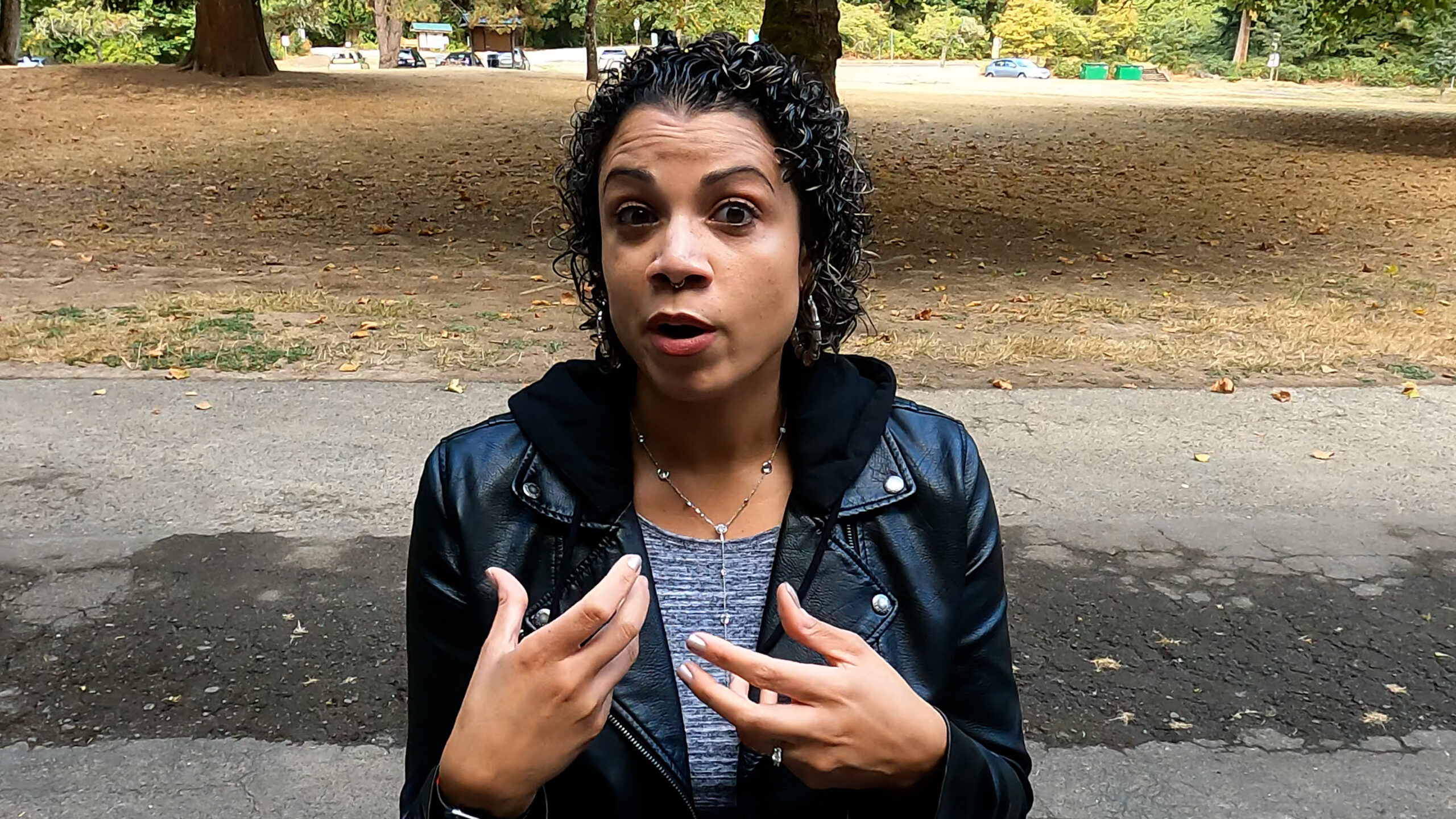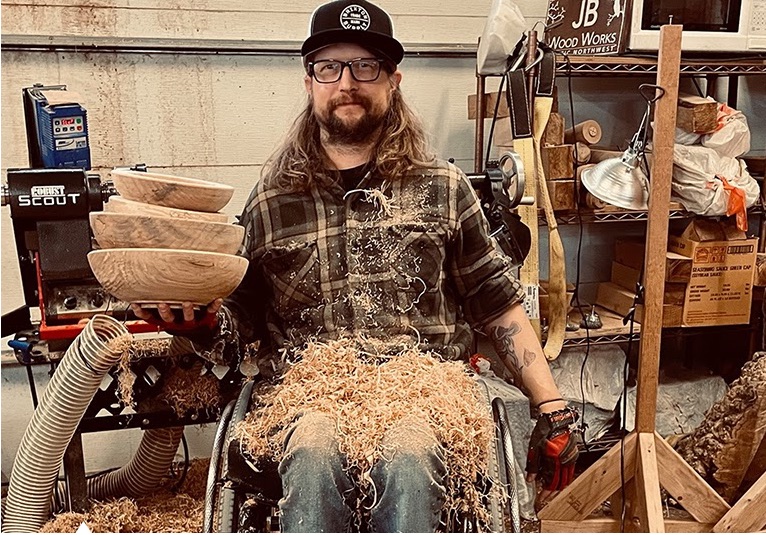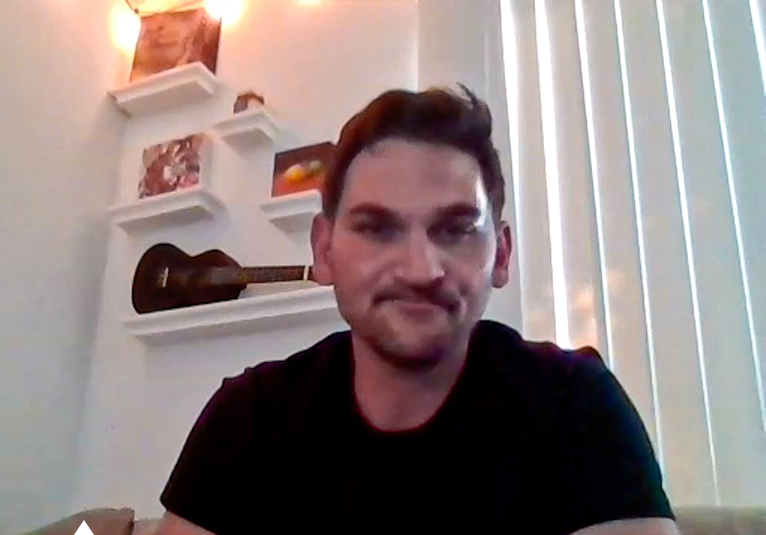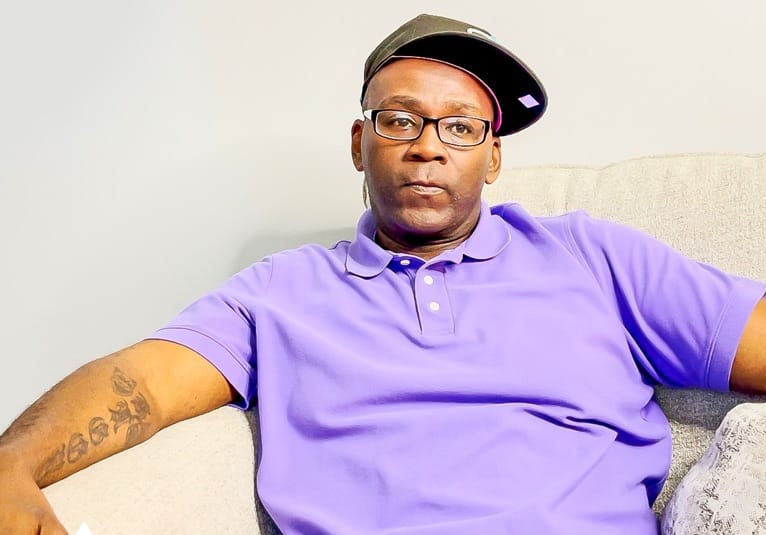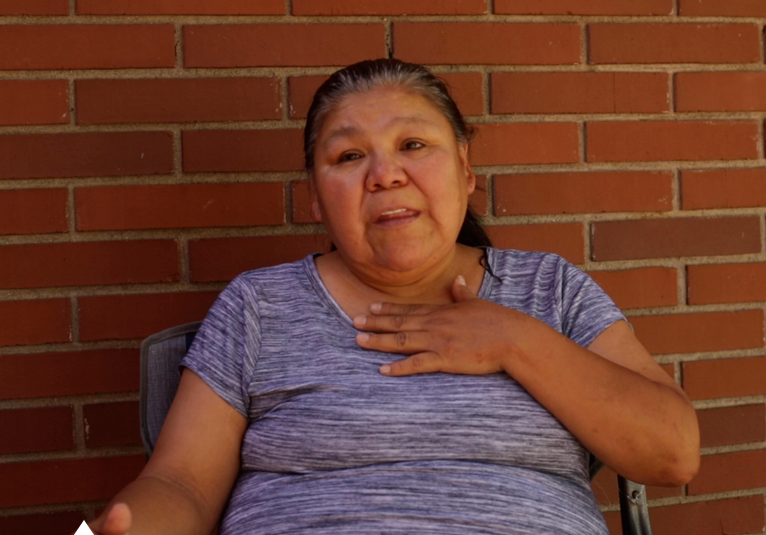Jessica D Jessica’s Personal Trauma Story
About three to four weeks ago, I was walking from my bus stop to my place of work, a near Harborview Medical Center. While I was walking to my place of work, I heard moaning and screaming coming from behind me, so I turned around. What I saw behind me were two men coming out of a brick apartment building. Both men were naked and covered in blood. One of the men was chasing another man with what looked to be a dagger or a knife.
The men rounded the corner and then one of the men fell to the ground. The man that was holding the knife started stabbing the other man while he was on the ground. The man who was stabbing eventually stopped stabbing the other man and turned towards me and was walking in my direction. As he did that, he started stabbing himself in the neck. He then proceeded back into his apartment building while the other man who was stabbed on the ground was found by security for the Harbor View emergency room, and they were able to get him to safety.
I stayed on the scene until law enforcement arrived because I called 911 as the incident was going on. Law enforcement and an ambulance all swarmed pretty quickly and so Luckily I was able to stay give a statement and then make my way into work. And surprisingly, I made it to work on time, even though I witnessed all of that.
The first thing I would recommend to people if they’ve experienced something like I have whether they were the victim of or witness, is to tell your story to someone or people that you trust. When you tell your story, tell it from beginning, middle, to the end. The end being when you felt safe in the situation. Tell it over and over again. Tell it with detail. Have your friends ask you questions about what you were thinking, what you were feeling or what you were remembering about that incident.
By doing this, it’s showing the brain that that traumatic incident that you either experienced or witnessed is over. One of the things that happens with post traumatic stress and post traumatic stress disorder is that the way that we bank and remember what happened to us is banked in a way where it’s not a story like other memories we have, where we can tell them and we don’t really feel anything after we tell them. By telling your story over and over again with detail, your brain is being told over and over again – this is over. This is now a memory. We are safe.
When I work with patients who are experiencing the intrusive feelings and thoughts, which are like the things that come to mind that are random and not linear, I tell them that by telling their story in therapy or with their friends and family, it’s helping to make that a memory. We’re filing it away in the brain so that it can be something awful that happened, but it’s over in a memory, and we can feel safe.
Another benefit by telling the story over and over again and filing it from beginning, middle and end, is that it helps the brain know that it’s over, and it also desensitizes us to the memory because we’re not avoiding it. We’re facing it. So we’re doing the opposite. We’re able to create a memory that is not something that’s triggering. It’s just a memory of something that happened, that is really awful.
Talking to someone, again, it could be someone you trust, family member, a friend, a coworker that maybe you trust and feel comfortable speaking with, or if your employer offers an Employee Assistance Program or other peer supports, depending on the type of work that you’re in is very helpful. If you can’t do this face to face, doing it by Zoom or face time can be just as effective.
Another cool thing about having face-to-face interactions with people is that for some reason, our body releases feel-good-hormones. So we start to feel good, we feel safe. We’re being validated. There’s tremendous benefits to telling your story, even though it’s hard the first couple of times that you do it.
The privilege I had in that particular life situation is that I work with trauma therapists. They were very able and willing to receive everything that I shared and continued to check up on me throughout my shift. I also had family members who are willing to listen. They don’t work in the same line of work that I’m in, but I think that they understood, given the nature of our relationship and what I experienced, that it would be valuable for them to sit through and to listen compassionately. I hope that if that ever happened to any one of them that I can do the same thing for them as a family member.

